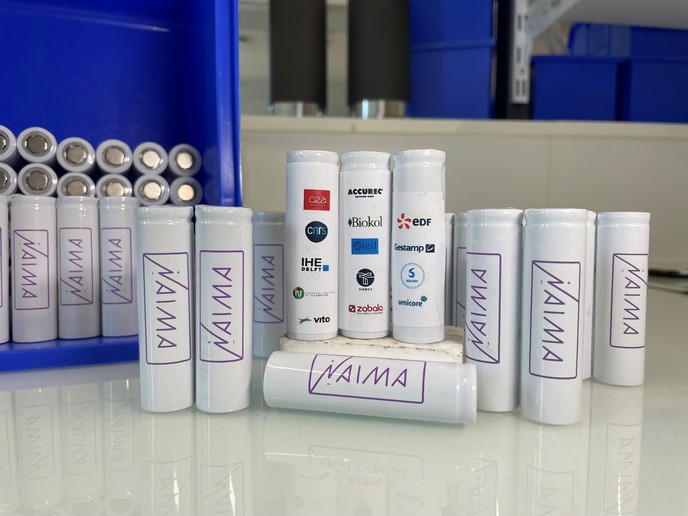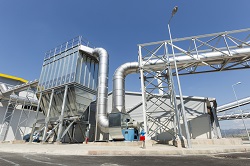Safe sodium-ion batteries shine in renewables and industrial applications
Lithium-ion batteries (LIBs) have revolutionised portable consumer electronics and they are used in most of today’s electric vehicles. They also power materials handling equipment such as small forklifts or robots in industrial environments, and provide energy storage in renewable energy applications. LIBs face important challenges including supply chain instability exacerbated by skyrocketing demand, safety related to an uncontrolled chemical reaction called thermal runaway(opens in new window) that results in fire, and inconsistent recycling processes. To solve these problems, the EU-funded NAIMA(opens in new window) project has brought promising sodium (Na)-ion battery technology, an LIB alternative, out of the lab and into industry in two highly successful and timely use cases: Industry 4.0 and renewable energy.
Active materials scale-up and prototyping
NAIMA developed and upscaled materials for the anode, cathode and electrolyte, including dry biomass precursors for the anodes and polyanionic and lamellar oxide(opens in new window) cathode active materials. These were upscaled from laboratory production to several kilograms (industrial scale). According to project coordinator John Abou-Rjeily(opens in new window) of http://www.tiamat-energy.com/(opens in new window) (TIAMAT): “EU availability of the raw materials required to produce the anode, cathode and electrolyte ensures the feasibility of their fabrication processes, supporting European independence. In addition, the Na ion can be stored at 0 V, protecting the batteries from the LIB’s inherent safety hazards.” “We produced several kilograms of our raw materials – industrial scale production – supporting the successful prototyping of two different configurations of Na-ion battery cells: high power density (related to how quickly a device can charge and discharge its energy) and high energy density (a measure of how much energy the device can store),” notes Abou-Rjeily. The former achieved 100 Watt-hours/kg (Wh/kg) and the latter 140 Wh/kg, far surpassing other alternatives and closing in fast on current LIB cells.
Industry 4.0 and renewable energy generation use cases
Several 48V Na-ion battery packs(opens in new window) were fabricated with over 500 NAIMA Na-ion cells and a state-of-the-art battery management system. These were validated in two scenarios in different European countries. An Industry 4.0 application targeted effective management of power demand peaks and energy cost reductions. A renewable energy application smoothed the fluctuation in photovoltaic or wind energy delivery. The results demonstrated that Na-ion battery technology is a robust alternative to LIB technology for both renewable energy and industrial applications. Na-ion batteries are also less complicated, streamlining operation and maintenance, and they are compatible with electric vehicle applications, where they can also co-exist with LIBs in hybrid configurations.
Sodium-ion batteries: accelerating the European energy transition
In addition to European independence and excellent performance, Na-ion battery technology checks all the boxes when it comes to sustainability, eco-design and a circular economy. Superior sustainability compared to LIBs is ensured by a European supply of raw materials, among which are dry biomass bio-precursors, hard carbon and salts. “Our sustainable European supply chain and environmentally friendly materials were reinforced with an eco-design approach, product development merging sustainability and technical strategies (LCA and LCC), and the exploration of real second-life applications including re-use and re-assembly processes. Our tailor-made recycling process led to a demonstration of 51 % recyclability,” Abou-Rjeily adds. NAIMA’s collaboration with more than 100 people from 15 diverse establishments in nine European countries has supported the transition to a secure, sustainable and competitive energy system based on Na-ion technology.







